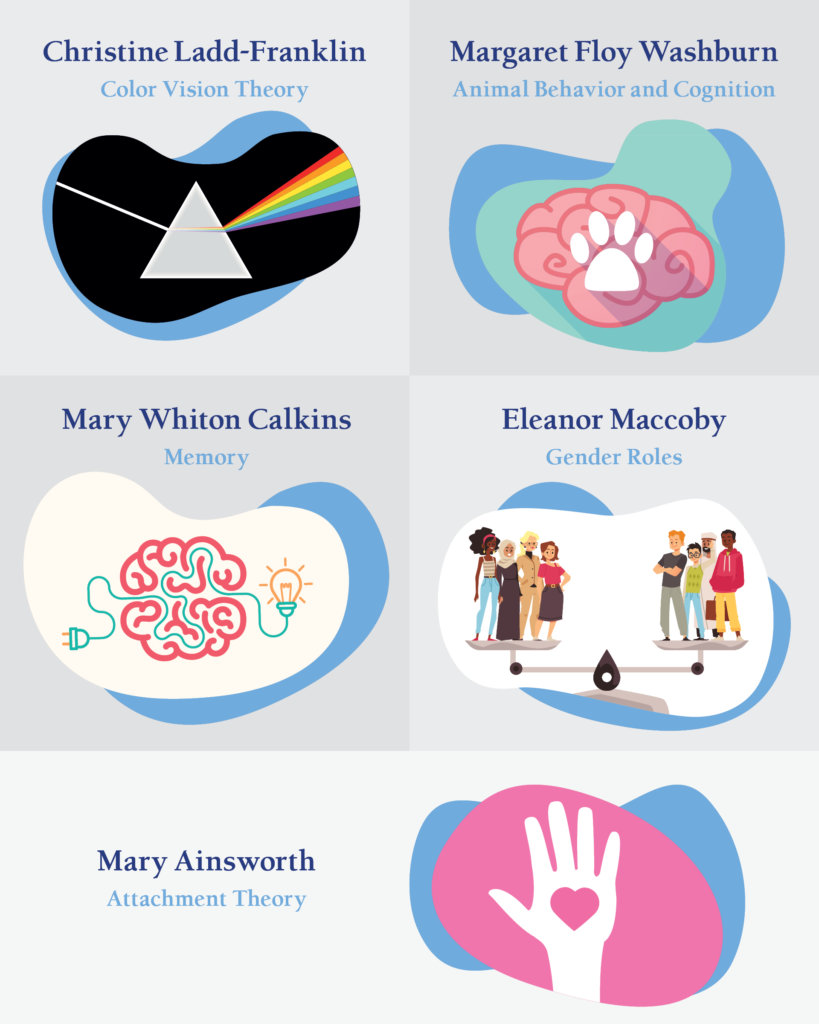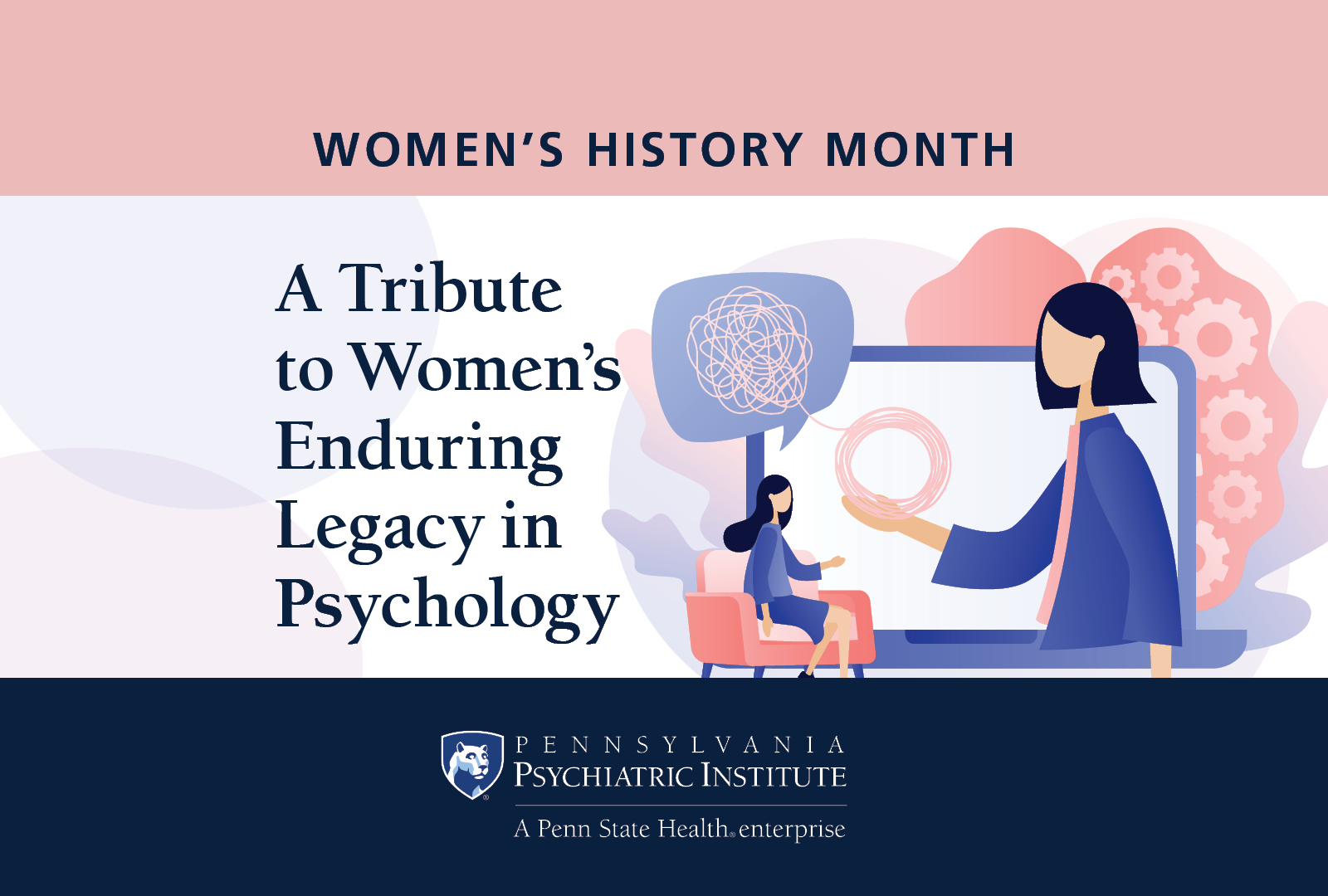As we celebrate Women’s History Month, the Pennsylvania Psychiatric Institute (PPI) honors the extraordinary contributions of women in health care who have been instrumental in advancing our understanding of mental health and humanity. Their pioneering work challenged the conventions of their time and laid the groundwork for future research and therapeutic practices.

Mary Whiton Calkins
Despite facing institutional sexism that denied her a Harvard PhD, Mary Whiton Calkins made indelible marks in psychology. The first female president of the American Psychological Association (APA), Calkins’ innovative research in memory and self-psychology challenged and expanded the boundaries of psychological understanding. Her development of the paired-association technique has had lasting implications for the study of memory, showcasing her resilience and dedication to science.
Read more about Calkins at Harvard.edu.
Margaret Floy Washburn
Margaret Floy Washburn’s contributions to psychology were equally groundbreaking. As the first woman to earn a doctorate in psychology, Washburn’s research in animal behavior and cognition bridged the gap between biology and psychology. Her tenure as APA president and her work, particularly “The Animal Mind,” has significantly influenced the study of comparative psychology, demonstrating the profound impact of meticulous research and scholarly rigor.
Read more about Washburn at APA.org.
Christine Ladd-Franklin
Christine Ladd-Franklin’s journey in psychology was marked by her fervent advocacy for women’s rights and her significant contributions to color vision theory. Her research challenged prevailing views and advocated for a more evolutionary perspective. Ladd-Franklin’s persistence in fighting for academic recognition highlights the importance of diversity in scientific inquiry and the value of perseverance.
Read more about Ladd-Franklin at Vassar.edu.
Eleanor Maccoby
Eleanor Maccoby’s influential research on gender roles has fundamentally altered our understanding of child development and family dynamics. Her work emphasized the nuanced interplay between biological and environmental factors in developing gender identities, enriching the dialogue on sex differences and promoting a more inclusive understanding of human psychology.
Read more about Maccoby at Harvard.edu.
Mary Ainsworth
Mary Ainsworth, renowned for developing the attachment theory, illuminated the crucial role of early emotional bonds in child development. Through her meticulous observational studies, Ainsworth identified the various attachment patterns and their implications for emotional and social development. Her insights into the nature of caregiver-child relationships have profoundly influenced theoretical and practical approaches to parenting and childcare.
Read more about Ainsworth in this article from Inge Bretherton, University of Wisconsin-Madison.
These women, through their unwavering dedication and pioneering research, have advanced modern health care and paved the way for future generations of mental health professionals. At PPI, we draw inspiration from their legacies as we strive for excellence in the care we provide, embodying the spirit of innovation and compassion they exemplify.
Expert Opinions
Learn more about the team at PPI by reading these expert opinions:
Advancing Mental Health Care for BIPOC Communities in Central Pennsylvania by Janet Passley-Clarke, PhD, DNP
Art Therapy: Embracing Innovative Therapeutic Approaches by Vanessa Clough, MA, ATR-P
Bridging Mental Health and Substance Abuse: PPI’s Holistic Approach to Recovery by Sarah Kawasaki, MD
Child and Adolescent Partial Hospitalization Program, Shannon Rudy, MS, MBA, LPC
A Glimpse into the World of Psychiatric Nursing, Tiffany Downs, MSN, RN
The Power of Dialectical Behavior Therapy at PPI by Shana Rivera, LSCW, C-DBT
Psychiatric Care for Mature Adults, Julie Graziane, MD

